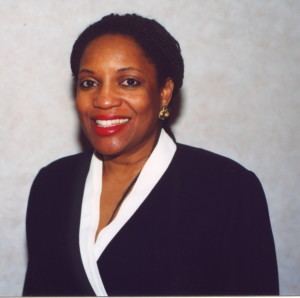

Dale Brown Emeagwali (born December 24, 1954) is an American microbiologist and cancer researcher. Emeagwali’s scientific accomplishments include the discovery of the existence of isozymes of kynurenine formamidase in the bacterium Streptomyces
Emeagwali was born Dale Donita Brown on December 24, 1954, to Doris Brown, a school teacher, and Leon Brown, a magazine production department superintendent. Throughout her childhood, she lived as the youngest of three, in the Baltimore, Maryland in the Popular Grove-Lafayette Avenue section of the city. She attended Alexander Elementary School and later went to Northwestern high school. Though the opinions of society were against her beliefs, Brown remained studious and at the top of her class. Emeagwali attributes her success to her parents, Leon and Dorris Brown because they never stopped supporting her dream to become a scientist. Even as a child, they would help her do fun science experiments in the kitchen at home. Emeagwali was born during the start of the Civil Rights Movement, a long period of time in which African-Americans all over the United States fought for their rights as humans. As a child, she experienced segregation and dehumanization in school and throughout the community. In an interview with Willie Givens, editor of the Afro-American, Emeagwali expressed that during her time in school, black children were told, “You can’t do
After high school, Brown entered Coppin State University in Baltimore, Maryland and earned her bachelor’s degree in a Biology major with a Chemistry minor in 1976. She then left Baltimore to attend Georgetown University School of Medicine in Washington, D.C. She earned her Ph.D. in Microbiology in 1981. On August 15, 1981, she married Philip Emeagwali, a Nigerian doctoral student in civil engineering she had met at Georgetown. They later had a son, Ijeoma.
Emeagwali commenced a postdoctoral fellowship through 1981 to 1984 with National Institute of Health (NIH) while holding concurrent fellowships with the American Cancer Society, the National Science Foundation and the Damon Runyon—Walter Winchell Cancer Fund. In 1983 Emeagwali was promoted to staff by NIH and two years later in 1985, she took up a fellowship with the Uniformed Services University of Health Sciences.
In 1986, Emeagwali moved to the University of Wyoming as a research associate and spent the years from 1987-1992 at the University of Michigan as an assistant research scientist. In 1992 the University of Minnesota hired Emeagwali as a research associate and she remained there until 1996, when she returned to Baltimore to work in the Biology department at Ball State University.[1] In this same year, she was named Scientist of the Year by the National Technical Honor Society for her contributions in the fields of microbiology, molecular biology and biochemistry.
Emeagwali’s early research focused on actinomycetes—bacteria that live in the soil. She was particularly interested in Streptomyces, the soil bacteria from which the antibacterial agent known as streptomycin is derived. Her most important discovery was of the existence of isozymes of kynurenine formamidase in the bacterium S.
Her later research involved the study of cancerous cells. Her most notable achievement in this area involves ras oncogene. Ras proteins play a vital role in the transmission of signals that regulate the growth of cells. When the gene that initiates the ras protein becomes mutated, the signals are disrupted in a way that can cause the cells to become cancerous. She also showed that antisense methodology (a process that inhibits the ability of genes to do their work) can be used to suppress genes that have become cancerous.
While in a research fellowship at University of Minnesota from 1992–95, she and her husband founded the annual African American Science Day. The project was designed to provide role models for African-American kids and encourage students to study science. The science-fair-type event, which also includes other professional scientists, is designed to give fourth-through twelfth-graders from inner-city neighborhoods an idea of what scientists do.[2] Emeagwali and her husband started this program in an effort to promote mathematics and science in communities where, like Emeagwali experienced growing up, students are often discouraged from studying these disciplines because of race and gender. Emeagwali strives to rend these stereotypes with not only her accomplishments as a scientist but also with the work of upcoming generations of African-American scientist and mathematicians.
